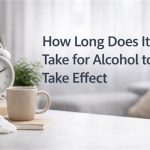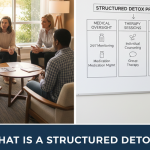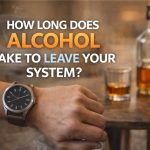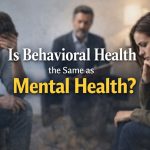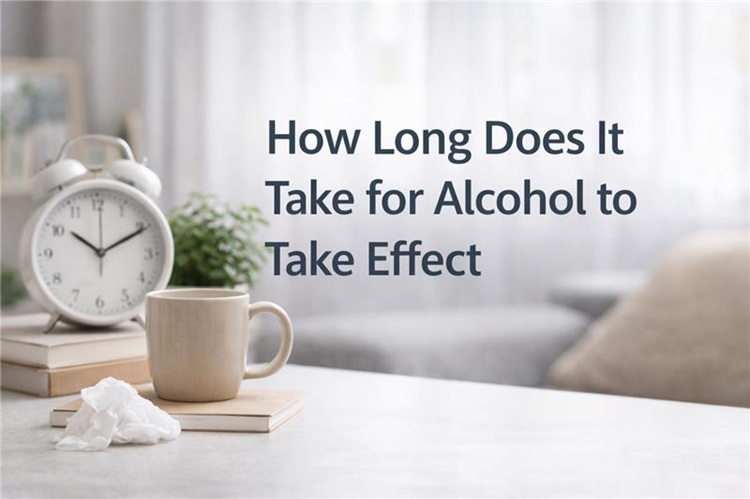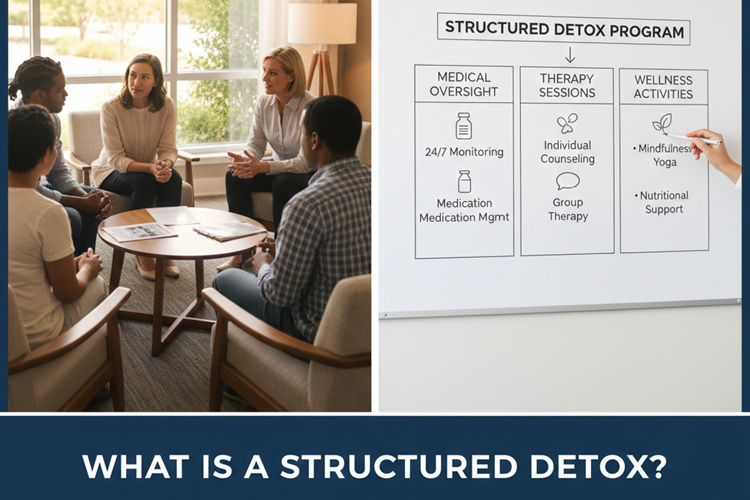Mental health and substance use disorders often intertwine, whereby one triggers the other, making it difficult to single out which one comes first. When a person has been diagnosed with both a mental health disorder and a substance use disorder, it is referred to as co-occurring disorder or dual diagnosis. Understanding these co-occurring disorders is crucial for anyone seeking recovery or looking to help a loved one. In this blog, we will look at some of the common mental health disorders that co-occur with substance use.
What Are Co-Occurring Disorders?
Co-occurring disorders are mainly characterized by conditions whereby an individual has a mental health disorder and a substance use disorder. Some of these conditions reinforce each other hence proving hard to recover if not treated at the same time. For instance, a patient who suffers from anxiety may use alcohol or drugs to help deal with the problem and only end up worsening the problem in the future.
Contact DeLand Treatment Solutions
If you or someone you know has a mental health disorder and is struggling to quit substance use, DeLand Treatment Solutions is for you. Our comprehensive treatment for co-occurring disorders ensures that both conditions are treated simultaneously for a more effective and lasting recovery. Contact us today at (386) 866-8689 to change yourself for the better for the new healthy life you deserve.
100% Confidential Support is Available 24/7
No matter what you’re going through, you’re not alone. Our dedicated team is here to provide a safe, judgment-free space where you can talk openly and honestly. Whether you need emotional support, resources, or just someone to listen.
We’re here for you—completely confidential and always respectful of your privacy. Call us today!
Common Mental Health Disorders That Co-Occur with Substance Use
Let’s explore the mental health disorders that frequently co-occur with substance use:

- Depression
Depression is one of the most prevalent mental health disorders across the world, and people with depression often have substance dependence. People with depression self-medicate with alcohol or drugs to tackle the feelings of hopelessness, anger, or exhaustion they have. However, substance use usually worsens the condition of depression, causing a cycle that is hard to break without proper treatment.
- Anxiety Disorders
Substance use is most often associated with anxiety disorders such as generalized anxiety, panic disorder, and social phobia. People may self-medicate using substances to alleviate anxiety, however, substances like drugs or alcohol, will worsen anxiety symptoms and make one develop dependency.
- Bipolar Disorder
Elevated highs and low depressive moods are some of the features of bipolar disorder that make it easy to identify. Indeed, drug use is one of the impulsive behaviors that are frequent during the manic episodes of bipolar II disorder. However, mood changes as a result of substance use become aggravated, or even induce more serious episodes over time.
- Post-Traumatic Stress Disorder (PTSD)
PTSD usually emerges in individuals who come across traumatic events in their lives. Lack of personal support and means to deal with flashbacks, nightmares, and feelings of constant danger results in the usage of alcohol or drugs. However, substance use can cause a delay in the healing process.
- Attention-Deficit/Hyperactivity Disorder (ADHD)
ADHD patients may be at a high risk of substance use because they may self-medicate traits such as hyperactivity, impulsiveness, and inattention. Sadly, this results in dependency problems, and ADHD symptoms seem to be even worse.
- Personality Disorders
Personality disorders, such as borderline personality disorder (BPD), are often associated with erratic behavior, impulsivity, and emotional instability, which increase the tendencies of substance use. This leads to substance use as a coping mechanism, which can lead to addiction and worsen the disorder.
- Schizophrenia
Schizophrenia – a mental disorder that affects thoughts and behavior, is well-related to substance use. Schizophrenic clients often use drugs and alcohol, thinking that they will help to alleviate some of the symptoms while this is usually counterproductive, substance use typically worsens their mental health symptoms and can interfere with medication compliance.
The Importance of Integrated Treatment
Dual diagnosis can be managed only if the treatment process takes into consideration both the mental health disorder and the substance use disorder. Dual-diagnosis treatment programs also enable the individual to undergo therapy together with taking medication to control both mental illness and alcohol dependence, which increases the prospect of achieving the goal of recovery. If left untreated, symptoms of mental illness cause relapse, and vice versa; If an individual has substance use, then their mental health will act up.

It is challenging to have to deal with a mental health disorder alongside a substance use disorder, but quite a lot can be done to recover. DeLand Treatment Solutions works towards ensuring that the clients receive the comprehensive care they require to achieve recovery. Reach out to us at (386) 866-8689 today to start your recovery.






